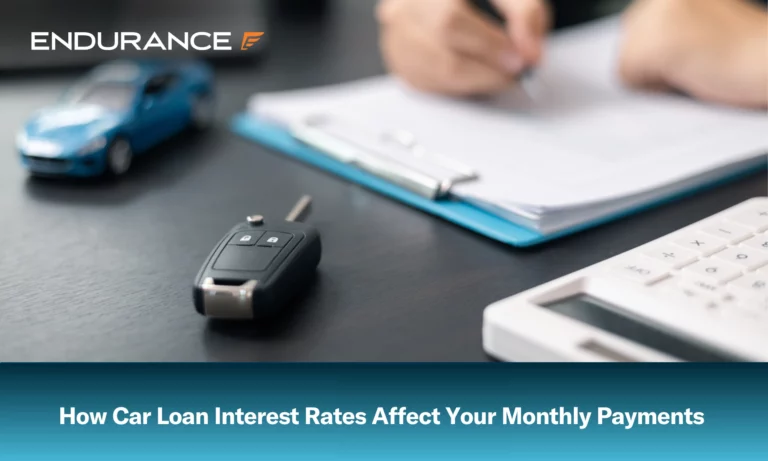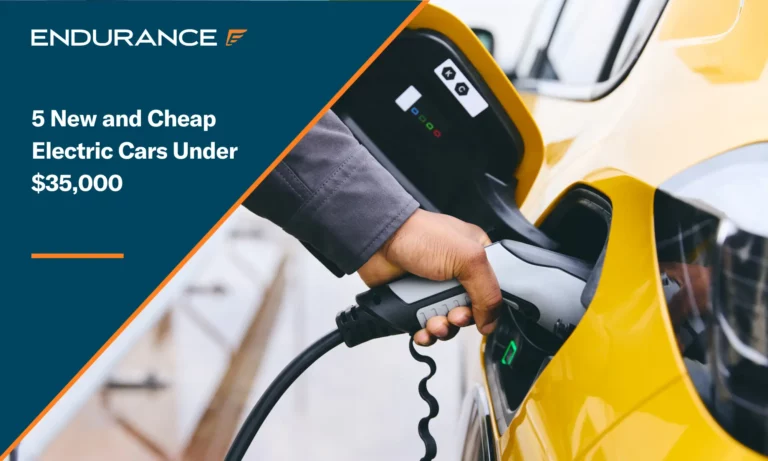How to Calculate the Value of an Extended Car Warranty

With the annual cost of car ownership only ever on the increase, it isn’t surprising that so many drivers are investing in extended warranties. After all, why empty your wallet every time your vehicle breaks down when an extended car warranty could foot the bill for you?
Of course, it costs money to invest in an auto protection program, but having one can save you thousands of dollars in repairs (and sometimes maintenance) per year. Like any contract, however, it pays to research before you pen to paper. Whichever warranty you choose, whoever provides it, you want to be absolutely certain that you’re getting great bang for your buck.
So, how do you calculate the value of an extended car warranty? Here, we’ll go through all of the factors you need to consider so you can decide on the right contract for you.
What Is an Extended Warranty?
When a vehicle rolls off the production line, it comes with what’s generally known as a factory warranty or a manufacturer’s warranty. This is basically an automaker’s promise to repair or replace anything that fails due to manufacturer fault within a predetermined number of years or miles traveled (whichever comes first). This kind of coverage is great and as comprehensive as it gets, but once it expires, you, as the owner, are fully responsible for any future repair bills. And repair bills are rarely cheap.
Most manufacturers allow their customers to continue factory warranty coverage past the expiry date by purchasing an extended warranty. While they may sound appealing, this kind of extended warranty isn’t ideal, as they’re usually more expensive, plus you’re tied to dealerships for repairs. To make matters worse, you must purchase an extended warranty while your factory warranty is still active. Leave it just a day late, and you’re out on your own.
Because of these shortcomings, most people prefer to opt for third-party vehicle service contracts over manufacturer extended warranties. Third-party warranty companies are incentivized to offer the best possible level of coverage at the best possible price, and they often throw in plenty of additional benefits to sweeten the deal. On top of that, used car owners are eligible, and you’re free to have repairs carried out at any certified auto shop.
4 Factors to Consider
The value of an extended warranty effectively boils down to what you pay vs. what you receive. If you pay a little and receive a lot, you’re most definitely getting great value. If you pay a lot and receive a little, you probably went wrong somewhere down the line. To help you avoid the latter, let’s take a look at the key factors you should be thinking about during the purchasing process:
1. The Vehicle’s Age and Mileage
It may seem obvious, but that doesn’t stop it from being true: the older and more well-traveled a vehicle is, the higher the chances of it breaking down at any given moment. Vehicle components are put under heavy strain during use, and even if the car in question isn’t used all that much, parts still decompose over time.
If your vehicle is pretty much fresh off the production line, a warranty will still be great for peace of mind but ultimately less likely to be used. The older it is, however, the more the value of a warranty goes up. You pay a little more for your premium, but you can still save thousands in the long run.
2. The Vehicle’s Reliability and Maintenance History
Similar to age and mileage, reliability and maintenance history directly affect the value of an extended warranty. Some vehicles score surprisingly low for reliability and are much more likely to break down. Luxury cars, in particular, are some of the most unreliable, plus the resulting repairs are as costly as they get.
Poor maintenance also damages components over time, so if your car has been neglected at all (by you or a previous owner), an extended warranty would be a wise investment. Switching to a regular maintenance schedule may delay any repairs a little, but chances are that you’ll be in the auto shop before long either way.
3. The Coverage Offered by the Warranty
Plenty of coverage providers are out there, all offering slightly different plans. When you’re looking for an extended car warranty, you’ll want to look at the coverage in detail and get a feel for how comprehensive it is. You may want to cover only the most expensive components, or you may want to cover as many components as possible—whichever it is, weigh up the price with what you could potentially save.
The more components that are covered, the more you can expect to pay, but the more you should ultimately make back in savings. For example, a powertrain warranty is much cheaper than an exclusionary or bumper-to-bumper one.
4. The Potential Repair Costs
While the other factors are all important, this is the big one. When you estimate the cost of potential yearly car repairs and compare this with your warranty fee, the warranty fee should be lower. If it’s equal or higher, you’re getting a bad deal. Websites like RepairPal can really help with this.
You also need to consider the deductible that your provider expects you to pay. This is usually charged per trip to the auto shop but can sometimes be charged per repair. If it’s per repair, those additional costs can really rack up, so run the numbers for a few different repair scenarios to get a feel for how things might play out financially.
Research and Comparison
Another crucial part of the warranty purchasing process is to research your options and compare them. It’s the only real way to be sure you’re getting good coverage at a good price.
Researching Different Warranty Options
There are so many extended warranty companies and plans that it can initially feel a little overwhelming. When it comes to providers, most do some things better than others, and a select few should be outright avoided. A quick Google search is usually a good place to start, but it’s also recommended to take a look at relevant publications like Motor1. They know their stuff about auto warranties and can point you in the right direction.
Once you have a few contenders that you’re interested in, look at them side by side. How comprehensive is their coverage in reality? How do their prices compare? What kind of additional perks do they offer? It’s really worth taking your time with this stage so you can be certain you’re going for the best.
Considering Deductibles and Exclusions
We’ve stated before: go through any contracts with a fine-tooth comb. Less reputable providers will often hide deductibles and exclusions in small print in the hope that they’ll go unnoticed, and you really don’t want to get stung by them later down the line.
It’s incredibly important that you know exactly what your warranty covers, which means understanding what it doesn’t cover too. Even the most comprehensive plans will have some exclusions, so get familiar with the list and ensure you’re happy with it. Likewise, if your deductible is so high that it almost negates any savings, it’s not a contract you should be taking out.
Evaluating the Reputation of Warranty Providers
One of the final hurdles is making sure you’re in good hands. A contract may look like a fantastic deal on paper, but it isn’t worth a penny if your provider doesn’t come through in the event of a breakdown. Motoring publications are a great source of professional reviews, but nothing beats a customer’s opinion. Check out review sites like Trustpilot and try to get a feel for what other people are thinking. Remember that most customers only leave reviews when they’ve had a bad experience, so don’t just go off the star ratings—read through a handful too.
The Better Business Bureau is also a useful resource. A warranty provider that has applied for BBB accreditation is usually more established and should, in theory, be more reliable. Customers can also file grievances about businesses via the BBB website, so you can see the most common issues with each provider you’re considering.
Making an Informed Decision
No one wants to sign up for a service that isn’t worth the money, so research as much as possible before you make any decisions. Only when you have all of the relevant information can you be certain your top choice offers the best value. The ideal extended warranty will:
- Cover all of the components that are important to you
- Cost less than the most expensive potential repairs
- Have a deductible that doesn’t negate potential savings
- Come from a reputable and reliable provider
If you find something that ticks all these boxes after considering your options, you’re probably good to go.
Comprehensive Coverage from America’s Most Trusted Provider
It’s no use investing in an extended warranty if you can’t rely on your provider when the worst happens. At Endurance, we know how much great service matters to anyone dealing with a breakdown, so we always go the extra mile to ensure you’re looked after. It’s why we’re consistently rated one of America’s very best vehicle service contract providers, and if that wasn’t enough, our customer service team has won plenty of awards too.
We offer a wide range of fully flexible plans, catering to everyone from rideshare drivers to luxury car owners. And if our base plans aren’t exactly what you’re looking for, we’ll be more than happy to tailor a bespoke program to suit your specific needs and budget. Better yet, we also add some of the best benefits in the business. Every Endurance plan includes 24/7 roadside assistance, replacement travel reimbursement, and trip interruption costs. Plus (for a $29 activation fee), all new Endurance customers also get a year’s free access to our Elite perks package, which opens up tire repair/replacement, key fob replacement, total loss protection, and more.
If you’d like to find out what we can do for you and your vehicle, call (800) 253-8203 to request a FREE quote. Or, if you’d like to do a little more reading first, you can check out the rest of the articles on our extended car warranty blog.













Alex has worked in the automotive service industry for over 20 years. After graduating from one of the country’s top technical schools, he worked as a technician achieving a Master Technician certification. He also has experience as a service advisor and service manager. Read more about Alex.